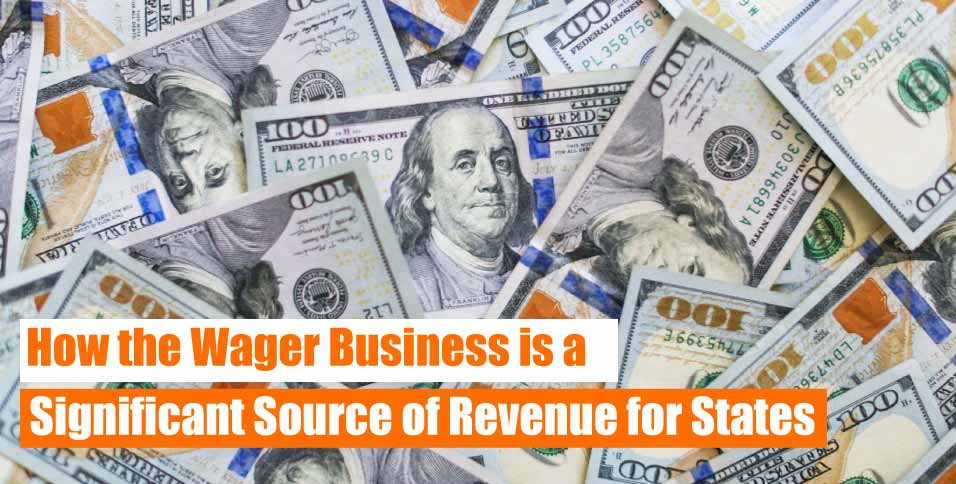Legal sports betting began en masse in the United States in 2018, when the Supreme Court overturned a federal ban on the pastime they had stood for decades beforehand. Since then, a wave of legalizations has swept across the nation as voters and lawmakers alike look to capitalize on the wildly profitable industry.
As of July 2023, more than half the states in the union allow mobile sports betting, while that number jumps to more than 70 percent when you factor in the states that allow wagers at in-person locations like casinos.
Perhaps the most exciting thing about the industry is that it’s just getting started: the three largest states by population (California, Texas and Florida) are some of the last holdouts who haven’t legalized sports betting yet. When those dominos fall, industry revenue could multiply massively in the span of a year.
Opportunities for Bettors and Bookies
In the world of sports betting, there are exciting opportunities for both bettors and bookies. The current landscape presents a favorable environment for those looking to place bets and for bookmakers seeking to expand their customer base.
For bettors, it’s an excellent time to get active and explore the multitude of options available. The market is highly competitive, with sportsbooks vying for customers’ attention. As a result, betting sites are offering enticing bonuses such as deposit matches and second-chance bets. These promotions are designed to attract new customers and reward loyal ones. By taking advantage of these offers, bettors can significantly enhance their potential returns.
On the other side of the equation, bookies are also experiencing a period of growth and expansion. With the legalization of sports betting in many states, the demand for bookmakers has increased. This presents an opportunity for aspiring bookies to enter the market and establish their presence. By providing competitive odds, a user-friendly platform, and attractive promotions, bookies can attract a loyal customer base and generate significant revenue.
Varying Revenue and the Benefits of Legalization
Betting revenue varies from state to state based on factors like what percentage of earnings the respective gross gaming revenue taxes take in, or what the population of a given state is.
Take a look at the state of New York (the fourth most populous state in the country), which brought in roughly $900 million in tax revenue in 2022 (just the first year of live wagering in the state) via sports betting. While that number may seem like a drop in the pond when viewed alongside the more than $220 billion state budget for that year (what difference does another hundred million here or there make?), it’s important to view the bigger picture.
No market economy operates as a closed system—that’s part of the reason for antitrust laws—and were it not for legalized sports betting in New York, that money would likely end up in other hands, whether neighboring states like New Jersey, Pennsylvania and Connecticut that had previously drawn betting traffic from out of state visitors, or in the pockets of black market bookies operating illegally. Legalizing the industry allows for regulation, benefiting the state and customers alike, and it would be naive to assume that outlawing betting would prevent it from taking place.
Regulation and Social Impact
Indeed, some state legislators have cited the presence of under the table sportsbooks as part of their motivation for voting to legalize the pastime. Seeing how New York raked in cash thanks to a lofty 51 percent tax rate on the sportsbooks, Ohio Governor Mike DeWine pushed state lawmakers to increase the tax levied on sportsbook winnings (which previously sat in the single digits) in order to boost the state’s coffers. DeWine’s initiative failed as legislators pushed back, worrying that making it less profitable for the sportsbooks to operate would discourage them from continuing to renew their operators licenses, causing the state to lose more money than they gained in the long run as black market sportsbooks came back in force. It can take years (if not decades) for economic changes to take full effect and, as we begin the sixth year of legal betting in the states, it’ll be fascinating to see how the market continues to play out.
When it comes to the revenue brought in through sports betting, most states earmark that portion of the yearly budget for specific funds aimed to give back to the community. Legislators know that there are stigmas surrounding the betting industry, so they make sure to balance out any perceived harm that could take place because of legalization by lifting up the people who need it most: it would be tough to get re-elected with a reputation of putting profits over people, so most states designate betting tax revenue toward programs to help poor or minority communities, to fund youth sports or education programs or even to help rehabilitate problem gamblers.
Licensing and Revenue Streams
Beyond the flat-rate taxes themselves, sportsbooks have to have the aforementioned betting operator licenses in order to conduct business. The license laws vary from state to state, with some having to renew their applications every year. Take Massachusetts, for example, where the state requires casinos to renew their license every three years. With the fee to do so costing $5 million and more than a dozen casino companies operating in the state, that’s a shot in the arm bordering on nine figures coming in every few years.
Also Read: Legalization of Online Gambling: benefits and Risks for the State and Players














